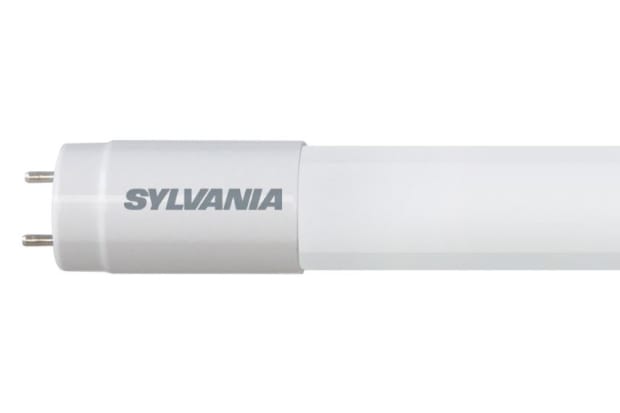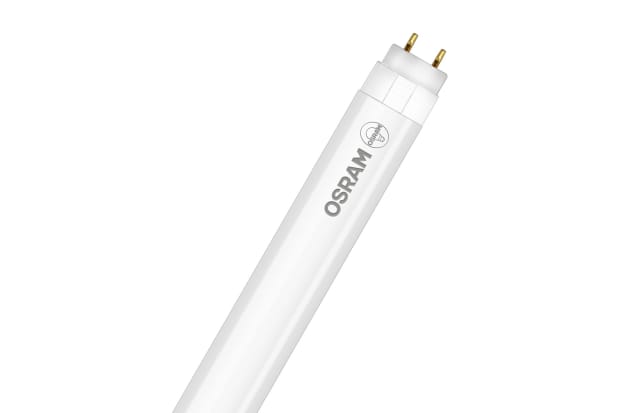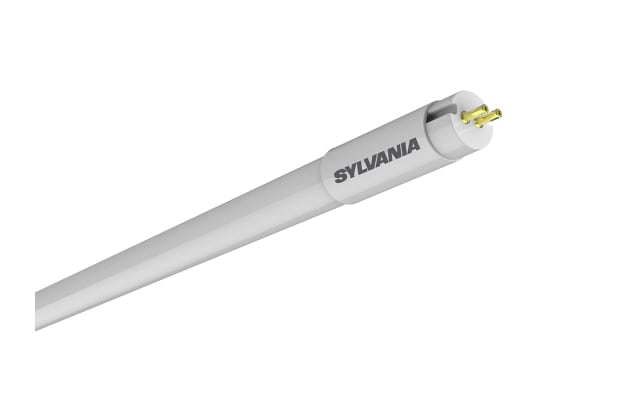- Published 24 Jan 2023
- Last Modified 29 Aug 2023
- 11 min
A Buyer’s Guide to LED Tube Lights
What are the benefits of LED tube lights? Read on to find out as we compare them to other lighting options.

What are LED Tube Lights?
LED tube lights are among the most popular and versatile lighting solutions available today. They’re particularly well suited to applications and install environments where the goal is to achieve a flexible variety of modern, clean-looking indoor lighting in rooms and displays of all sizes.
You’ll often find assemblies of larger LED tube lights being used to provide bright, even lighting across many types of wider or more open spaces. Common examples might include commercial displays, workshops and laboratories, kitchens, hallways, foyers, factory floors, gymnasiums, car parks, and any other communal, multipurpose or high traffic areas.
Smaller LED tubes are also highly popular options for accent lighting in and under cabinets, worktops and other items of built-in or freestanding furniture, as well as in many different types of signage assemblies and other important display areas.
Today, a huge number of homes, business premises and civic facilities are transitioning away from the traditional, older style fluorescent/CFL tube lighting and installing LED alternatives in their place. There are several great reasons to do this, with the most compelling being the lower running costs and far longer lifespans of LED lamps vs fluorescent equivalents. This generally results in vastly improved efficiency throughout the working life of the light. In turn, this ultimately means that you can expect far better value over time, as well as considerably reduced environmental impact, by switching to LEDs.
In this introductory guide, we’ll find out a little more about the different types of LED tube lights you can buy online, as well as briefly looking at how to fit them. We’ll also compare LED tubes to other common types of tube and strip lights, and contrast the relative strengths and weaknesses of each kind.
T8 Tubes and T5 Tubes
LED tube lights are usually categorised by various key designations. The most common of these are tube length (this can be stated in either imperial or metric measurements) and bulb or lamp size. Lamp size is typically given as a ‘T’ measurement, with widespread standard sizes including T5, T8 and T12.
If you’re wondering exactly what is the difference between T5, T8 and T12 lights, the main point to remember is that the higher the T rating, the thicker a lamp will be in diameter. T equals 1/8 of an inch and the number after the T denotes how many eighths of an inch wide the bulb is - hence T8 is exactly one inch or 8/8ths. You can use this to calculate the diameter of different sized LED tube lights. Therefore, T8 tubes at 1-inch (25.4mm) have a larger diameter than T5 tubes (5/8-inch or 15.9mm), but they are not as wide as T12 (1.5-inches or 38.1mm) lamps.
In standard fluorescent tubes, smaller diameters almost always mean better efficiency. A T5 bulb will use less energy to produce the same amount of light as a T8, while a T12 will run at about 45% higher electricity consumption to output the same amount of light as a T5. Being vastly more power-efficient across the board, newer LED equivalents don’t follow quite the same pattern in terms of percentages. However, the basic principle remains similar, even if the ratios between bulb diameter and energy usage stay far closer together as you move up the lamp sizing scale.
It's also worth noting that different tube sizes will tend to be associated with different lamp bases or sockets. T8 and T12 tubes are mounted to bi-pin G13 bases as standard, while T5 tubes are normally attached to a bi-pin G5 socket fitting. In simple terms, this is essentially the tube light equivalent of standard bulb cap styles and sizes.
Fitting an LED Tube Light
Fitting an LED tube light is fairly straightforward, regardless of whether it’s a brand-new fixture or a retrofit for an older fluorescent lamp set up using the existing lighting fixture.
Many people are still in the process of transitioning to this more modern, efficient technology. As a result, it’s quite common to see existing fluorescent tube fixtures housing new LED bulbs. For that reason - and because installing LED tube lights in brand new, purpose-built LED housing fixtures is a fairly self-explanatory, plug-and-play sort of job - we’ll concentrate on the retrofitting process in this section of the guide.
The exact process for retrofitting an LED tube light into an existing fluorescent strip lighting fixture will differ slightly depending on what type of fixture setup is in place. The main deciding factor here will likely be the age of the pre-existing fixture. Older versions are often still equipped with both a conventional magnetic ballast and a starter, whereas slightly newer fluorescent lighting arrays might only include an electrical ballast.
Either way, newer LED lamps don’t require a ballast. In older arrays, the job of the ballast was to regulate the current flowing to a fluorescent lamp for as long as it remained lit after the starter had initially caused the inert gases inside the tube to arc and illuminate. LED tubes don’t need any sort of continuous active power regulation and can, therefore, bypass the starter component altogether.
Most retrofit LED tube installations will require the user to perform this ballast bypass procedure themselves. It’s not complicated to do, and it’s generally a recommended step during a retrofit, as leaving ballasts in place can sometimes result in adverse performance effects such as buzzing or flickering of LEDs. Furthermore, bypassing the ballast completely will also ensure that your LED lights are running at optimal efficiency, by eliminating a potential source of wasted power draw from the circuit.
Performing a Retrofit
The basic steps to performing a retrofit are as follows:
What You Will Need
You’ll need wire strippers, possibly both a flathead and a Phillips screwdriver, and ideally some form of crimp or push-in wire splices. As an additional pro tip, don’t forget to bring a work light or similar if you will need one after shutting off power to the fitting you’re working on!
The Process
- Fully disconnect the fixture from the power supply or mains circuit via a breaker
- Carefully remove the old fluorescent tube(s)
- Remove any covering panels and expose the wiring of the light fitting
- In fixtures with an electronic ballast, remove it by cutting any wires attached to it (cut fairly close to the ballast body) and unscrewing or unclipping it from the housing of the fixture
- In older fixtures with a starter and a magnetic ballast, you’ll need to remove the starter. While it’s not strictly necessary to remove the magnetic ballast, this is generally advisable as it will eventually degrade plus it takes up space in the fitting
- If retrofitting into a fixture that previously used a fluorescent starter, a new LED starter must now be fitted
- Reconnect the loose wires you just cut to reform the electrical circuit running through the fixture, ensuring that your new connections are both properly insulated and securely connected
- Fit a new LED lamp of the appropriate size for the housing/socket, being mindful of the fact that one end is the live connection, while the other is the neutral connection. Your wiring through the fixture needs to match this configuration, otherwise, you will short circuit through the lamp
- Reconnect power to the fixture and turn on to test
Safety is always imperative, so if you are unsure or uncertain about working safely with electrical fixtures and fittings, it’s advisable to let a qualified individual complete the task at hand. Check out our useful guide for more information about electrical safety.
LED Tube Lights vs Fluorescent Tube Lights
One of the first things that most people want to know about LED tube lights is how they compare to the older-style traditional fluorescent tubes in terms of performance and money-saving.
The simple answer is that LEDs effortlessly outperform fluorescent lamps for all-round efficiency over the course of their working life. In any direct LED vs fluorescent tube comparison test, the newer LED standard will last far longer and can produce a much brighter light at vastly lower levels of energy consumption than their older fluorescent counterparts.
However, it’s also worth taking a slightly closer look at some of the more specific questions that are often asked about the performance and variations between the two bulb types. We’ll also provide a chart for easy comparison between the two in the next section of this guide.
LED vs Fluorescent Lumens - Which is Brighter?
In terms of LED vs fluorescent brightness, both lamp types are capable of outputting extremely bright and clean light over a reasonably wide area, depending on the exact specifications of the tubes and fittings being used. However, the key difference is that LED varieties can generate the same level of brightness at far lower wattages than their fluorescent equivalents.
While overall brightness - measured in lumens - may be the same when taken as a single standalone measurement between equivalent LED or CFL lamps, this means that the LED version is achieving this brightness at a far lower rate of energy consumption, heat generation, and day-to-day running costs. You can see in the comparison chart below some rough equivalents for lumens/wattage between fluorescent and LED lamps designed to light the same area to the same degree of brightness.
The Cost of LED vs Fluorescent Lighting
Speaking of relative costs, when it comes to LED vs fluorescent lighting, there are two important factors to consider. Firstly, the initial price of LEDs is generally slightly higher, to begin with. However, as this newer technology becomes more commonplace, the initial cost difference is actually starting to reduce fairly quickly.
Perhaps more importantly when considering overall expense and budgeting, though, is the fact that LED tubes are so much more efficient and cost-effective over the working life of the lamp itself. Because they run at much lower wattages to produce the same lumen output as their fluorescent equivalents, LEDs are far cheaper in terms of energy bills. Additionally, this lower power consumption means less heat and far slower rates of degeneration, meaning that a single LED tube light is typically expected to last anywhere from 3-5 times as long as an equivalently rated CFL version.
Since the cost of an LED lamp is unlikely to be anything like five times that of a fluorescent tube, the LED version very quickly becomes a more cost-effective option despite being slightly more expensive on day one. Average estimates suggest that real-time savings are typically achieved in less than two years of standard use.
Other Advantages of LEDs Over Fluorescent Tube Lamps
- LED bulbs are more environmentally friendly, both in terms of energy use and manufacturing materials/processes - and this also applies to disposal (LED lamps contain no mercury)
- LED tubes are more directional - one of several reasons why they’re more efficient is that they don’t bounce light in a 360-degree radius, half of which is ‘wasted’ if they’re installed on a ceiling or wall
- LED versions are easily dimmable with the correct setup, whereas fluorescent lamps are typically either on or off
- LED tubes are sold in numerous different colour temperatures, ranging from cool or ‘daylight’ models to warm white
- LED tubes are far less fragile than fluorescent equivalents, being made of rugged plastics rather than thin glass
LED vs Fluorescent Tube Comparison Chart
The following LED vs fluorescent tube comparison chart should help you to quickly identify some of the equivalent values and strengths of LED tube lights when compared to the older CFL standards:
Wattage Equivalency Chart
Lumens Output | LED | Fluorescent |
|---|---|---|
400-500 | 6-7W | 8-12W |
650-850 | 7-10W | 13-18W |
1000-1400 | 12-13W | 18-22W |
1450-1700+ | 14-20W | 23-30W |
2700+ | 25-28W | 30-55W |
Average Cost Comparison Chart - Single Lamp (60W incandescent equivalent)
LED | Fluorescent | |
|---|---|---|
Watts | 7W | 14W |
Average Cost | £4 | £3 |
Lifespan | 25,000 hours | 8,000 hours |
Bulb Cost/Decade (Continuous Use) | £10-12 | £30+ |
Popular LED Tube Light Brands
Explore some of our most popular LED tube light brands below:
Related links
- 2 W LED Tube Light
- LEDVANCE 40580 1100 lm 7.5 W LED Tube Light 1.96ft (600mm)
- Orbitec LED LAMPS - T8 SPECIAL TUBE FOR BUTCHERY 2050 lm 22 W LED...
- RefLED Platinum Retro ES50 2.2 W LED Tube Light
- Orbitec LED LAMPS - T8 SPECIAL TUBE FOR BUTCHERY 1000 lm 10 W LED...
- Osram ST8AU-CON 3600 lm 24 W LED Tube Light 5ft (1513mm)
- Osram SubstiTUBE 2100 lm 13.1 W LED Tube Light, T8 (1212mm)
- 2700 lm 18 W LED Tube Light 4.9ft (1500mm)



